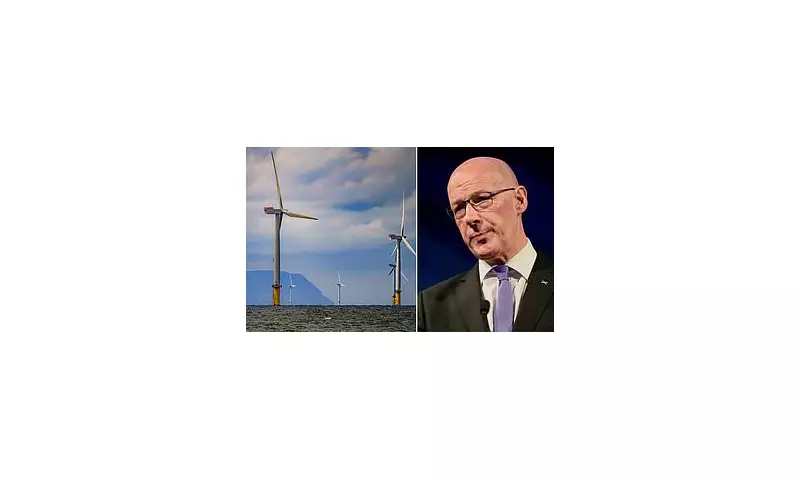
Scottish First Minister John Swinney has launched a robust defence of a controversial deal with a Chinese state-owned company to supply turbines for a massive offshore wind development, despite escalating national security concerns from experts and political opponents.
Security Experts Sound Alarm Bells
The agreement with China State Shipbuilding Corporation (CSSC) to provide 67 towering turbines for the £2 billion Caledonia wind farm off the Angus coast has triggered alarm among security professionals. CSSC's direct links to Beijing's military-industrial complex have raised fears about potential espionage capabilities embedded within critical energy infrastructure.
"When you're dealing with critical national infrastructure, the security considerations must be paramount," warned one security analyst familiar with the deal. "The potential for embedded surveillance technology or remote access capabilities cannot be ignored."
Swinney's Unwavering Position
Facing intense questioning at Holyrood, the First Minister remained steadfast in his support for the arrangement. Mr Swinney emphasised that all necessary due diligence had been conducted and stressed the economic benefits the project would bring to Scottish communities.
"This project represents significant investment in Scotland's renewable energy future and will create hundreds of jobs in the process," Swinney told parliamentarians. "We have followed all appropriate protocols and remain confident in the security arrangements."
Political Storm Gathers Pace
The Scottish Conservatives have led the charge against the deal, with party leader accusing the government of "sticking their heads in the sand" about genuine security threats. Scottish Labour and Liberal Democrat MSPs have echoed these concerns, calling for greater transparency around the decision-making process.
Opposition politicians point to similar deals being blocked or reviewed in other Western nations, including the United States and Australia, where Chinese involvement in critical infrastructure has been curtailed over security fears.
Broader Implications for UK Energy Security
The controversy emerges against a backdrop of increasing scrutiny of Chinese involvement in Western infrastructure projects. Security specialists highlight the strategic risk of allowing a geopolitical competitor potential access to systems that could disrupt national energy supplies during times of international tension.
With the Scottish Government committed to ambitious renewable energy targets, the balancing act between security concerns, economic benefits, and environmental goals has never been more challenging—or more politically charged.
As the debate intensifies, all eyes remain on whether Westminster might intervene using its national security powers, setting the stage for a potential constitutional clash over energy policy and foreign investment.





